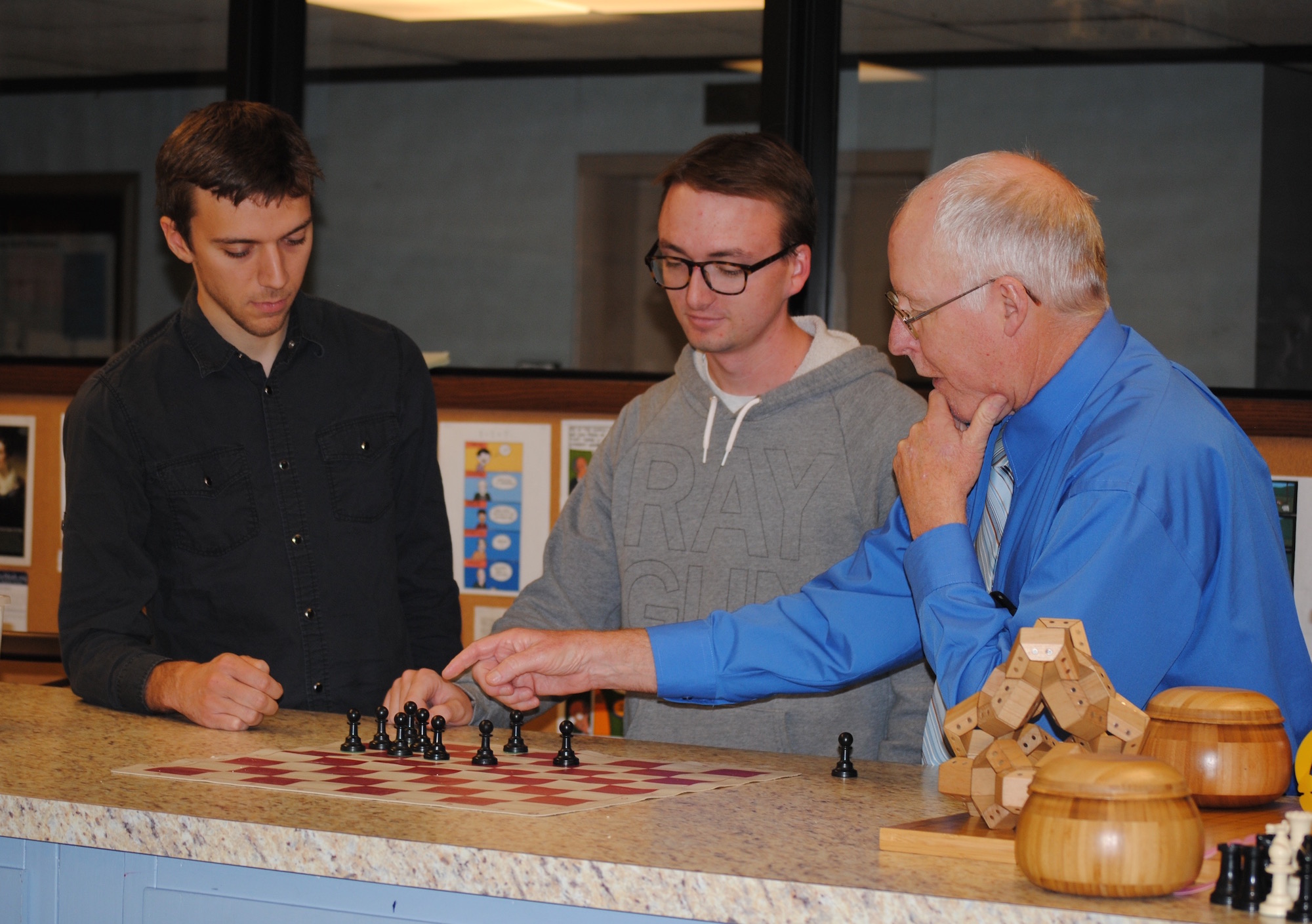Math Circle inspires students to think creatively


The Iowa State University Math Circle, an outreach program of the Department of Mathematics, inspires young mathematicians to think creatively and explore a broader world of mathematics than they might otherwise see in their classes.
Joseph Clanin, a senior in mathematics, attended the math circle as a freshman in high school.
“I’m certain that the math circle is among the primary reasons I wanted to be a math major in the first place and that I eventually ended up at Iowa State,” Clanin said.
Kevin Moss, a doctoral student in mathematics, agreed.
“The math circle gives those that are good at math a way to see the fun part of it,” Moss said. “It’s definitely the reason I’m a mathematician now.”
Elgin Johnston, a professor of mathematics and director of the Center for Excellence in Undergraduate Mathematics Education (CEUME), holds a few math circles throughout the year for two and a half hours on select Saturday mornings. Steve Butler, an associate professor of mathematics, and several graduate students are also involved in leading or co-leading the math circle. Area high school and middle school students are invited to attend.
“There are a lot of good high school students who are excited about mathematics,” Johnston said.
He provides students in the circle intriguing problems that are fun and easy to explain but have rich math in them, such as how to flip a random stack of pancakes the shortest number of times to stack it largest to smallest.
“Often students go off in directions we don’t expect, and you have to think on your feet,” Johnston said.
Clanin commuted forty minutes to come to the math circle. He and a friend discussed the concepts and ideas from the math circle long after it was over. Later in high school while taking classes from Iowa State they continued to drop by Johnston’s office to discuss ideas and topics unrelated to their coursework.
“He was always very encouraging of any questions we had or ideas we had,” Clanin said.
Clanin said the skill of creative and abstract thought processing is important even for those who don’t continue in the study of mathematics.
“If you’re given a problem to solve whether it be mathematical or otherwise, it’s usually good to look for solutions in places that don’t seem directly related to the question, to view the question in a broader context,” Clanin said.
The exposure from the math circle to interesting, new concepts and Iowa State faculty helped Clanin choose to come to Iowa Sate for college. He plans to pursue a doctorate degree after graduating.
“I don’t think that before attending the math circle I even knew that was possible — that you could just go research math,” Clanin said. “It got me interested in a whole really strange abstract world I had no idea existed. Now my intention is go on and do that for a living.”